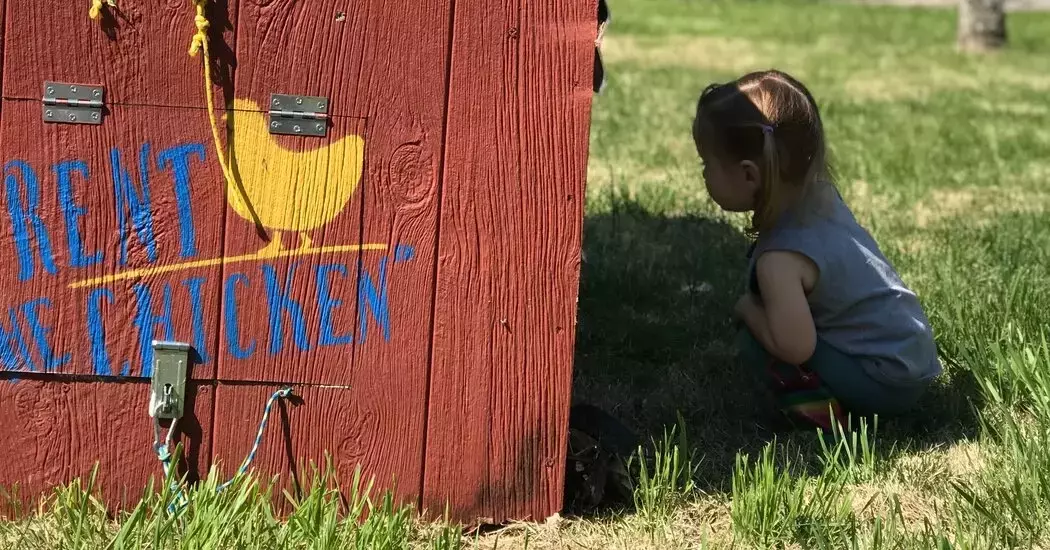
In recent months, the trend of renting chickens has surged in popularity across America as families seek a personal and local solution for their egg needs. While this practice might not offer financial savings, it provides an engaging experience that connects people with nature and sustainable living. Last summer, Genevieve Shaw Brown, a freelance journalist from Manhattan, embraced this idea by renting chickens for her family’s vacation home in East Quogue, New York. Her children were captivated by these feathered companions, treating them almost like pets while enjoying fresh eggs daily. As avian influenza drives up national egg prices, more households are turning to rental services rather than committing to full-time farming.
This phenomenon reflects broader shifts in how Americans approach food sourcing. Companies such as Farmer Joe's Gardens have seen unprecedented demand for chicken rentals, particularly during peak egg-laying seasons like spring and summer. These services deliver fully equipped coops along with hens, allowing renters to enjoy fresh eggs without long-term commitments. For instance, Ms. Brown found joy in naming her rented flock—Chicken Nugget, KFC, Betty, and Hei Hei—and organizing playful activities around them. The experience was so memorable that she promptly rebooked for the following year despite initial skepticism from friends and neighbors.
Behind this growing interest lies practicality and fun. With wholesale egg prices skyrocketing to over $8 per dozen compared to last year's $2.25, having access to backyard eggs becomes increasingly appealing. Moreover, seasonal arrangements ensure chickens thrive under professional care during colder months when egg production slows down naturally. Owners of rental businesses note they are fully booked well ahead of schedule—an indication of just how widespread this trend has become.
As families continue exploring ways to live sustainably amidst economic challenges, backyard chicken rentals present an innovative option blending convenience with education. Beyond providing fresh eggs, these programs foster appreciation for agriculture among children and adults alike. Thus, what began as a quirky experiment for some now serves as both a practical necessity and delightful pastime for many others looking forward to warmer weather and abundant harvests next season.
